Putin says Russia’s interests ‘non-negotiable’; Ukraine bolsters forces as ‘invasion’ begins; US, western allies impose sanctions
Putin uses video address to praise battle-readiness of Russian army after satellite images appear to show his military on the move near Ukraine border.
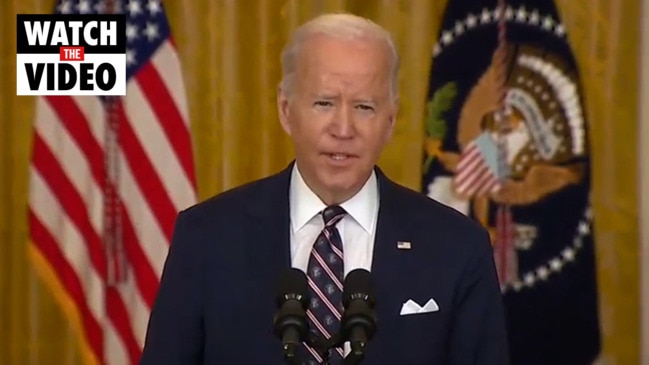
Russian President Vladimir Putin said on Wednesday Moscow was is ready to look for “diplomatic solutions” amid raging tensions with the West over Ukraine, but stressed that the country’s interests were non-negotiable.
“Our country is always open for direct and honest dialogue, for the search for diplomatic solutions to the most complex problems,” Putin said in a video address to mark the Defender of the Fatherland Day, a public holiday in Russia.
But he added: “The interests of Russia, the security of our citizens, are non-negotiable for us.” Putin spoke after parliament’s upper house, the Federation Council, on Tuesday gave him unanimous approval to deploy “peacekeepers” to two breakaway Ukrainian regions now recognised by Moscow as independent, and potentially into other parts of Ukraine.
In the video address, Putin congratulated the country’s men and said he was certain of the “professionalism” of the Russian military and that they will stand up for the country’s national interests.
He praised the battle-readiness of the Russian army and said the country would continue to develop state-of-the-art weapons.
“We will continue to develop advanced weapon systems, including hypersonic and those based on new physical principles, and expand the use of advanced digital technologies and elements of artificial intelligence,” the Kremlin strongman added. “Such complexes are truly the weapons of the future, which significantly increase the combat potential of our armed forces.” Western officials have been warning for weeks the Russian leader has been preparing an all-out invasion of Ukraine.
Ukraine bolsters forces as ‘invasion’ begins
Putin’s video afddress came came after US President Joe Biden on Tuesday announced tough new sanctions against Russia for “beginning” an invasion of Ukraine, but said there was still time to avoid war.
Ukrainian President Volodymyr Zelensky has ordered the mobilisation of reservists as Russian troops head to Ukraine’s eastern Donbas region, while US President Joe Biden warned an “invasion” was underway.
As satellite images appeared to show new Russian troop movements near Ukraine’s border with Belarus, western governments moved to impose a range of sanctions on Russian banks and some of its wealthy individuals.
It followed Moscow’s move to recognise two Russian-controlled statelets in Ukraine’s east as independent, and President Vladimir Putin’s ordering of “peacekeeping soldiers” into the region.
Mr. Zelensky, in a televised address, said Russia’s threat to Ukraine’s sovereignty had forced him to recall contract military personnel to active duty and to mobilise members of the newly created territorial defence brigades for exercises.
He said Ukraine would not carry out a general mobilisation of civilians, urging them to continue normal life.
“We are certain of ourselves, we are certain in our country, we are certain in our victory,” he said. “We are here to overcome, not to cry.”
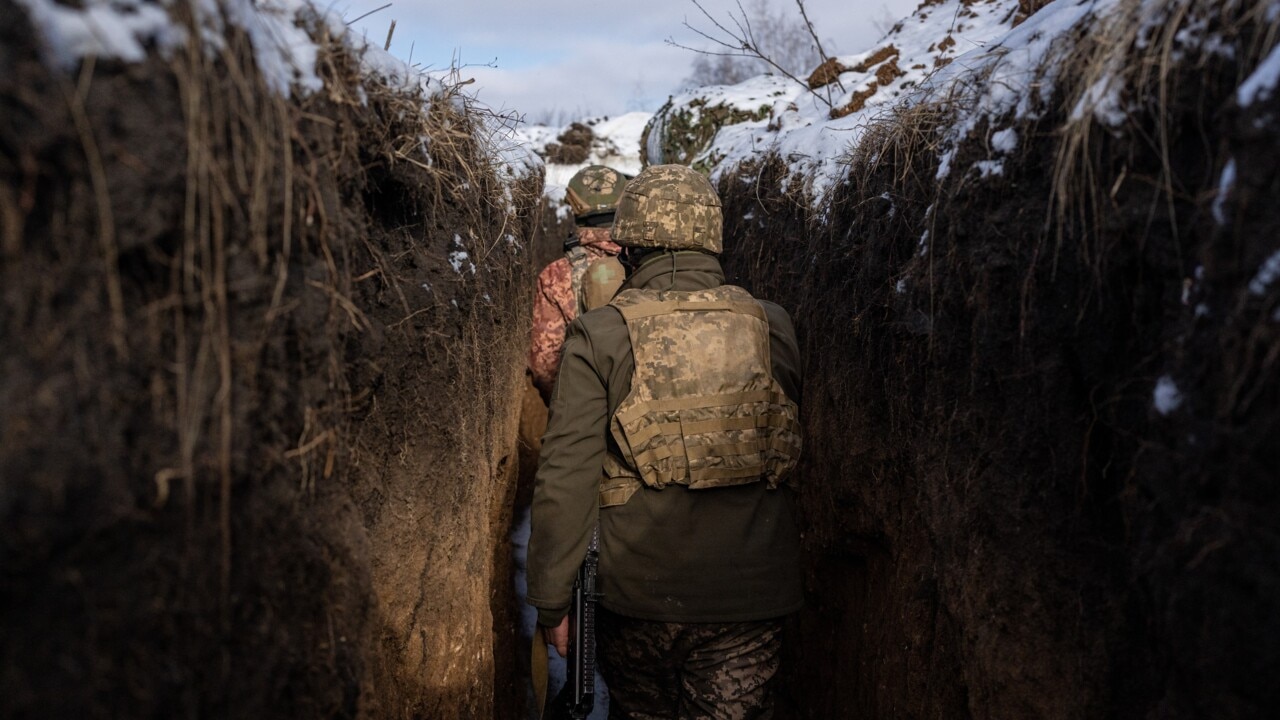
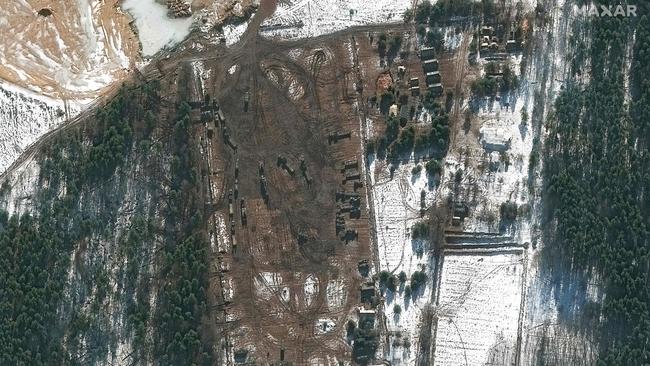
First range of sanctions imposed
President Biden earlier imposed sanctions on two Russian banks, three oligarchs and cast President Putin’s government out of international borrowing markets as part of a “first tranche” of penalties designed to punish Russia following its invasion of eastern Ukraine.
Speaking for the first time since Mr Putin sent Russian “peacekeepers” into separatist regions of Eastern Ukraine on Monday, Mr Biden said Russia’s actions were a “flagrant violation” of international law that demanded a “firm response”.
“To put it simply Russia just announced it’s carving out a big chunk of Ukraine,” the president said on Tuesday EST at the White House, declaring Mr Putin’s move the “beginning of a Russian invasion” of Ukraine and seeking to reassure critics that the US actions would match its tough rhetoric on sanctions.
“Who in the Lord’s name does Putin think gives him the right to declare new countries,” the president added, slamming the Russian president’s lengthy speech on Monday from the Kremlin as “bizarre” and a “twisted rewriting” of history.
Mr Biden, implying the US had been involved in the decision, praised Germany’s decision overnight not to approve the Nord Stream 2 gas pipeline from Russia, an $11bn investment that would have delivered Moscow annual river of foreign exchange.
“This will relieve Russia’s choke hold over Europe and is a major turning point in world energy dependence on Russia,” a White House official told reporters later.
Secretary of State Antony Blinken said he had cancelled a meeting with Russian Foreign Minister Sergei Lavrov scheduled for later in the week.
“Now that we see the invasion is beginning and Russia has made clear its wholesale rejection of diplomacy, it does not make sense to go forward with that meeting at this time,” Blinken said.
He added the US remained committed to a diplomatic solution if Russia were prepared to show it wanted to de-escalate.
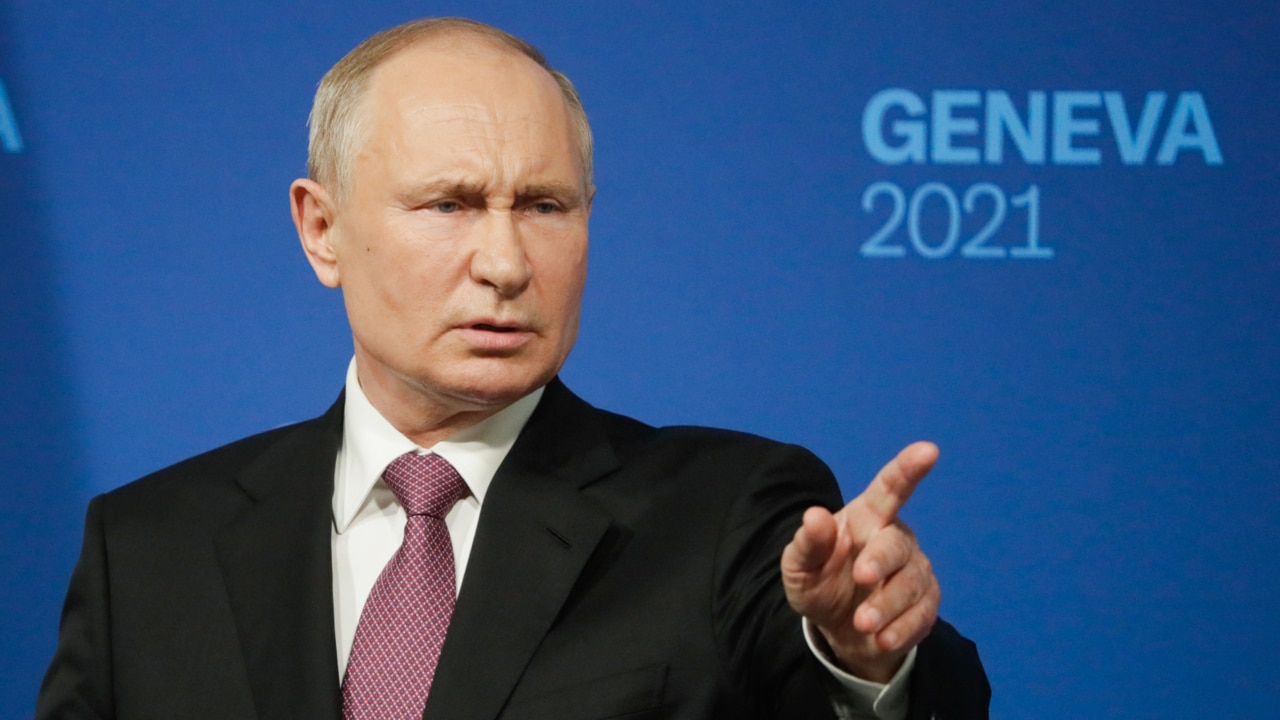
President Biden also banned the Russian government from borrowing money in financial markets, sanctioned two Russian banks closely connected to the Russian military and Kremlin, and three individuals – Alexander Bortnikov, Sergei Kiriyenko and Pyotr Fradkov – and their families.
“That means we’ve cut off Russia’s government from western finances,” Mr Biden said, foreshadowing further sanctions should Russia escalate tension further.
The US move came after the UK slapped sanctions on five Russian banks and three (separate) billionaires, in what Prime Minister Boris Johnson called “the first barrage” of measures in response to the Kremlin’s actions in Ukraine.
French Foreign Minister Jean-Yves Le Drian said EU foreign ministers “unanimously agreed on an initial sanctions package”, as he also cancelled a meeting with his Russian counterpart.
“The sanctions will hurt Russia and will hurt a lot,” EU foreign policy chief Josep Borrell told reporters, adding that targets for asset freezes and visa bans included 351 members of Russia’s lower house State Duma.
NATO chief Jens Stoltenberg said the alliance had “every indication” that Moscow “continues to plan for a full-scale attack on Ukraine.”
Addressing the UK parliament hours after Russia ordered troops into two Moscow-backed Ukrainian rebel regions on Monday, Johnson described it as “a renewed invasion” of its western neighbour and “pretext for a full-scale offensive”.
The British leader said further sanctions were “at readiness to be deployed” if the Kremlin showed further aggression in what he predicted would be “a protracted crisis”.
“We cannot tell what will happen in the days ahead,” Johnson added in the House of Commons, amid cross-party condemnation of Moscow’s actions.
The five banks targeted by the UK – Rossiya, IS Bank, General Bank, Promsvyazbank and the Black Sea Bank – were distinct from those the US had targeted.
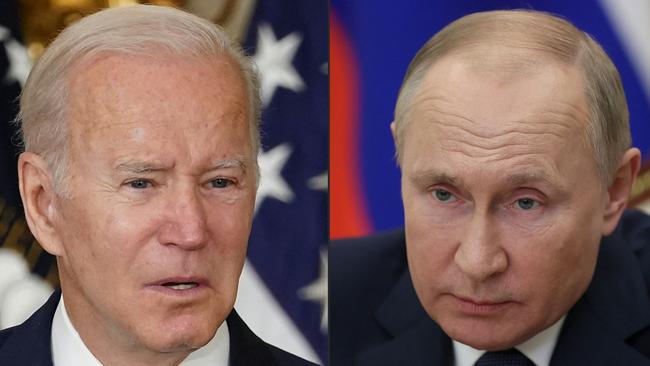
The White House later said the two targeted Russian banks were a “glorified piggy bank for the Kremlin that holds around $50bn in assets” and another that financed the Russian military.
“No Russian financial institution is safe, we’re ready to press the button to take further action on the very largest Russian banks,” a senior official added.
The President’s remarks followed criticism of the US response, from Republican and some Democrat lawmakers and some analysts, that the US hadn’t lived up to the fire and brimstone sanctions the president and top US officials had warned Russia of for weeks.
Last night the US last night stopped Americans from dealing in any way economically with the two break-away regions of Ukraine, known as the Donetsk and Luhansk republics.
“We are beginning to impose sanctions far beyond what we and allies implemented in 2014, and if Russia goes further we stand prepared to go further too,” the president said in his remarks.
A senior official said later the US hadn’t “taken SWIFT off the table”, referring to the international payments system used by private and central banks.
“It remains an option that we can deploy depending on how Russia makes its next move” the official added, arguing US sanctions and their prospect had already hurt Russia.
“Russia’s stock market is down more 30 per cent since November, its currency has lost at least 10 per cent of its value, and interest rate markets are charging Russian government have spiked well above 10 per cent,” the official told reporters.
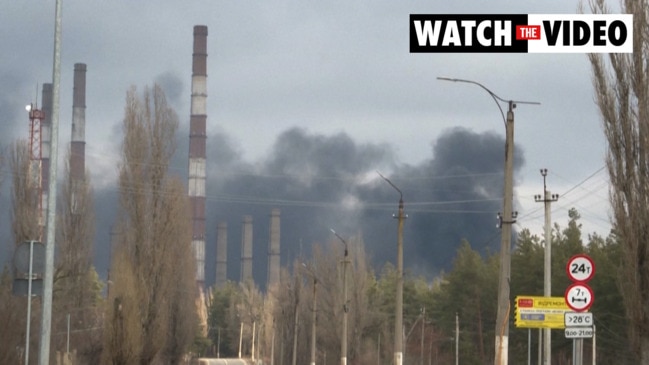
Standing in the East Room the president also said that US troops already stationed in Europe would be sent to NATO’s eastern flank to bolster defences of Baltic States.
US officials say there is a 150,000-strong Russian force poised to launch an all-out assault on Ukraine.
“These are defensive moves. We have no intention on fighting Russia, but we will defend every inch of NATO territory,” Mr Biden said.
Amid concerns about the repercussions of sanctions on Americans, especially in energy markets, Mr Biden said he would “use every tool at our disposal to protect American business and consumers” from expected increases in gas and petrol prices.
“Defending freedom will have costs for us as well, we need to be honest about that,” Mr Biden said.
Soaring energy prices throughout 2021 have already pushed the US inflation to 7.5 per cent in January, the highest level in 40 years, even before any impacts of sanctions on Russia
The president’s speech appeared to calm financial markets, which in earlier trading had seen losses on the New York benchmark indices of almost 2 per cent.
The S & P500 was trading down around 1 per cent on Tuesday afternoon EST.

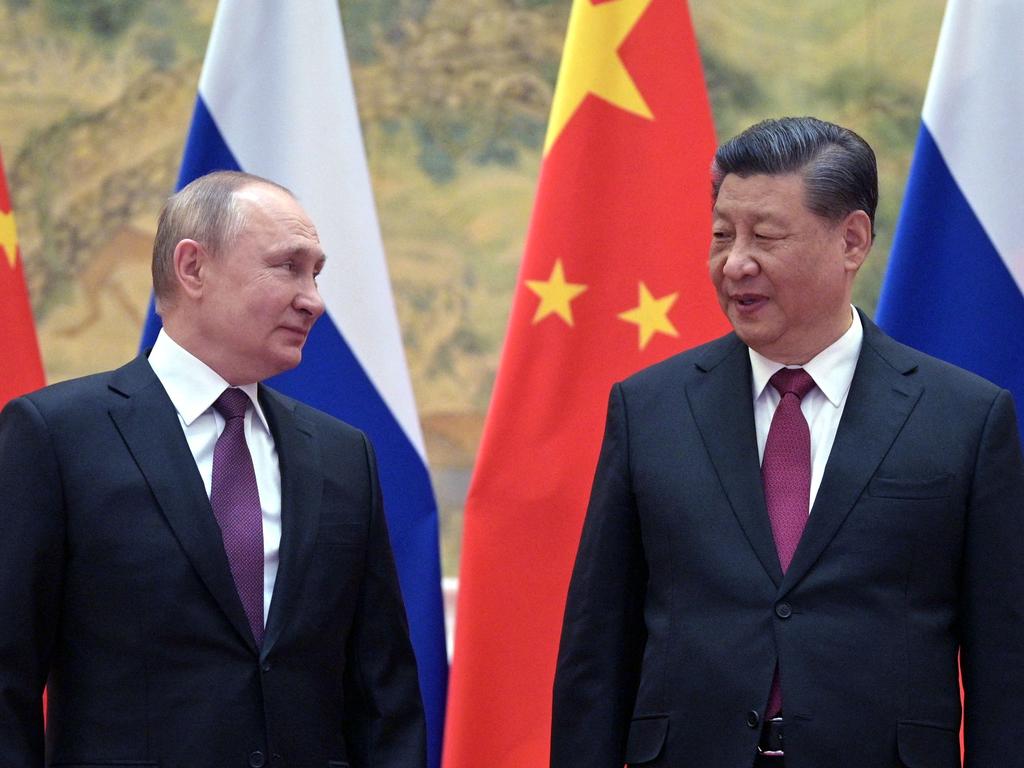





To join the conversation, please log in. Don't have an account? Register
Join the conversation, you are commenting as Logout